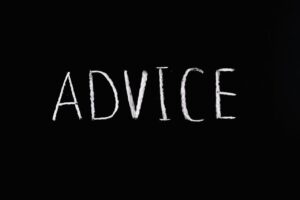
Markets tumble
Written by R. A. Stewart
The markets have taken a tumble after President Trump’s tariffs have started a trade war.
The newspapers have reported that Kiwisaver balance will be affected on this. This is stating the obvious. Kiwisaver balances may have dropped, but a lot of people are decades away from retirement so how the markets are performing in 2025 is not going to affect how much they have in kiwisaver when they retire in 2035 and beyond.

It all boils down to selecting the right fund for your risk profile. Money invested falls into one of three categories. Short-term money, medium term money, or long-term money depending on when you are going to be needing that money.
Other factors which come into it are your age, health, and commitments.
The share market goes up and down and the recent (March 2025) tumble is mainly due to the tariffs which President Trump has imposed on goods from certain countries, namely steel.
Losses are only on paper, but investors who react to recent events and change to conservative funds will lock in those losses and miss out on the gains when the markets rebound.
The United States will have a new President in four years time, and it certainly will not be Donald Trump in charge then so the markets will certainly bounce back then, if it had not prior to that.
Changing to conservative funds is not the only way to lose during a market slump. The others are to stop contributing to your retirement fund or if you are already retired, make withdrawals from kiwisaver.
With everything being said, it is not the current market slump which will determine how much your retirement portfolio is worth when you retire but how you react to market volatility and that is all down to the choices you make.

Here is a list of choices which will affect your kiwisaver balance when you retire:
- Changing from a growth or balanced fund to a conservative fund.
- Stop contributing to your retirement fund.
- Withdraw money from your kiwisaver.
- Chopping and changing from one type of fund to another.
No one is going to reach the retirement age and regret that they made contributions to their retirement fund. Ask yourself this question, “Will my future self thank me for investing my money instead of wasting it?”
Your retirement fund can only be accessed when you reach the retirement age, therefore you need an alternative source of funds to cover any future financial needs. There are lots of online investing platforms available where you can invest a minimal sum of money regularly and still have easy access to your funds. If you are from New Zealand or Australia, sharesies is a good option for you. This gives you easy access to the share market. Check out Sharesies Here
About this article
The opinions expressed in this article are of the writer’s own opinion and may not be applicable to your personal circumstances, therefore discretion is advised.
Disclaimer: I may receive a small commission if you join sharesies.
You may use this article in full or part as content for your blog or ebook. Check out my other articles on www.robertastewart.com

























